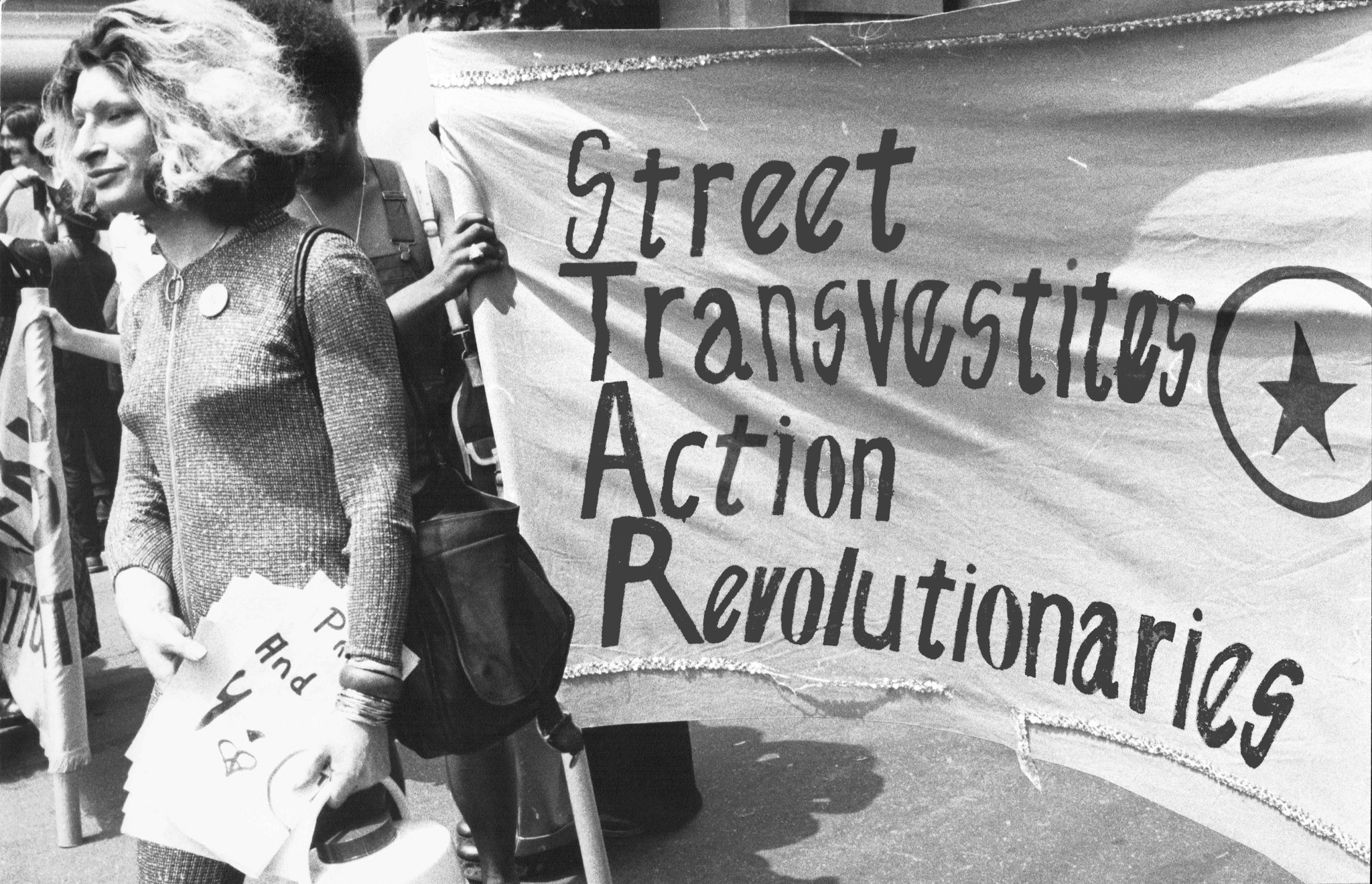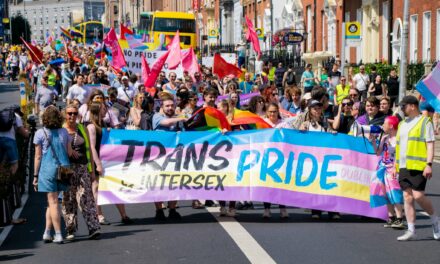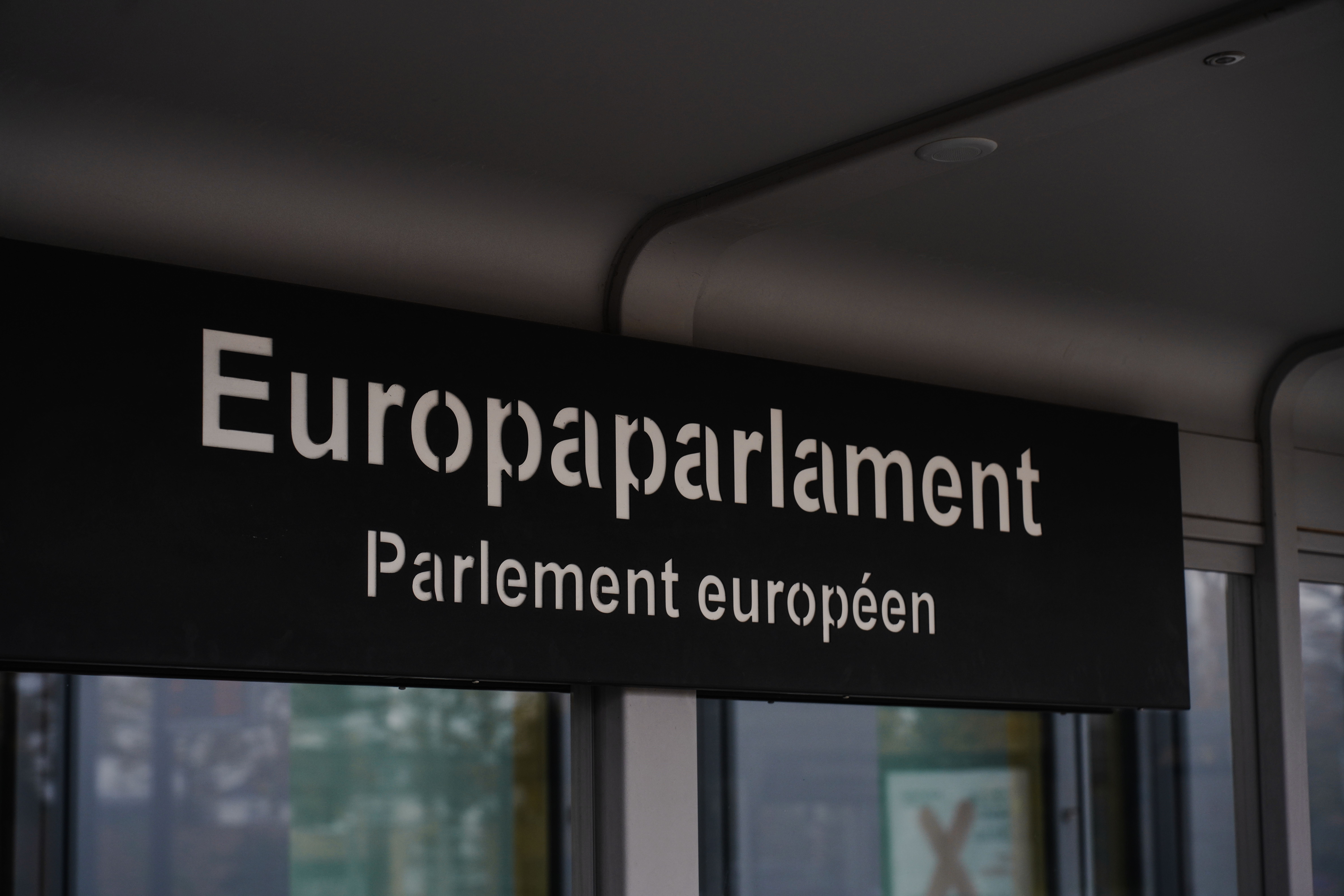
As preparations for the 2025 edition of Luxembourg Pride are in full swing, alarm over the escalating international rollback of queer rights is hard to ignore. Around the world, anti-LGBTI+, and particularly anti-trans campaigns, are converging with broader anti-rights forces, prompting renewed warnings from respective local organizers and international human rights organisations. LGBTI+ people, especially those who are trans and further marginalised by intersecting lived experiences and identities – such as race, class, migration status, Hiv status, or sex work – are witnessing a rapid restriction of fundamental freedoms and human rights protections.
Transgender Europe (TGEU), a leading network advocating for trans rights, recently reported that for the first time in its 13-year history, regression of trans people’s rights to self-determination and bodily autonomy has outpaced progress in Europe and Central Asia. Rather than being isolated and trans-specific, TGEU describes this as a “strategic assault” on fundamental freedoms and core democratic principles.
In April of this year, the Hungarian parliament passed a constitutional amendment banning public events organized by LGBTI+ communities. The law also allows authorities to use facial recognition tools to identify and fine participants. In the UK, the Supreme Court ruled that the term “woman” in the Equality Act 2010 only applies to those assigned female at birth—effectively excluding trans people, especially women, from key protections and rendering legal gender recognition in the UK partially ineffective, with far-reaching consequences. Meanwhile, in the United States, the House of Representatives passed a bill that allows states and insurers to withdraw coverage for trans gender-affirming care and bans Medicaid and the Children’s Health Insurance Program from covering it entirely. And yet, across these communities, there is also remarkable resilience. Queer communities in Luxembourg and beyond continue to create networks of care, mutual aid, and political resistance.
Luxembourg is not immune to anti-LGBTI+ developments. The recent introduction of a petition attempting to ban LGBTI+ topics from school curricula for minors, or the controversy surrounding far-right MP Tom Weidig’s online behaviour, point to a shifting climate. Here and elsewhere, boundaries of what can be said and done are being pushed and intentionally crossed with the help of populist and extremist rhetoric. While previously marginal anti-rights political positions are gaining traction (and free marketing), marginalised groups are increasingly becoming hypervisible and exposed to violence.
Legislatively, Luxembourg has stagnated since 2018, as reflected in the country’s declining position in ILGA-Europe’s Rainbow Index. In 2025, the Grand Duchy ranks 10th out of 49 countries, down from 3rd in 2019. Key recommendations, such as banning forced medical interventions on intersex infants and children, outlawing conversion therapies, and ensuring automatic co-parenting recognition for all couples, remain unfulfilled, although they violate rights that the Luxembourgish constitution should guarantee. The sitting CSV-DP coalition agreement (2023-2028) includes a pledge to ban conversion therapies and introduce a “neutral” gender marker. Both were previously left unrealized.
Key recommendations, such as banning forced medical interventions on intersex infants and children, outlawing conversion therapies, and ensuring automatic co-parenting recognition for all couples, remain unfulfilled, although they violate rights that the Luxembourgish constitution should guarantee.
The government’s stance on the prohibition of forced surgical interventions on intersex minors remains vague. Despite repeated calls by Luxembourgish civil society and the European Commission against Racism and Intolerance, children who are born with variations in their sex characteristics in Luxembourg are still subjected to non-consensual and cosmetic surgical interventions, the medical benefits and purpose of which are increasingly questioned both within and outside the medical profession. These procedures constitute no less than genital mutilation.
Luxembourg does not provide transparent data on surgical interventions on intersex infants, but estimates suggest around 50 masculinising procedures (often for hypospadias) are performed annually, usually without urgent medical need. Feminising procedures, including clitoral reduction or vaginal construction, and even gonadectomies, continue despite known risks. All of these procedures are irreversible sex assignment interventions that can lead to lifelong complications, involuntary sterilisation, severe mental suffering, and, for gonadectomies, the need for lifelong hormone replacement therapy.
“These surgeries are not emergencies, and could be delayed until informed consent can be given,” explains Dr. Erik Schneider, founder spokesperson of Intersex and Transgender Luxembourg (ITGL). “They reflect a pathologizing framework that seeks to erase and ‘correct’ the non-conformity of natural variations in sex characteristics.” Medical professionals are irreversibly imposing binary societal sex norms on children despite the absence of medical necessity or the child’s informed consent. These procedures deprive patients of assessing, exploring, and expressing their relation to their sex and gender prior to the intervention. As such, they risk imposing a sex that diverges from the person’s self-perception. For some, such impositions may require future “gender transitions” to be able to align with their self-perception. Yet, in such cases, gender-affirming surgical care may be further complicated by the inevitable damage any (recurring) genital mutilation will have left.
The Intersex movement emphasizes that binary-sex-norm-enforcing medical practices extend beyond surgical procedures. Medical professionals may pressure people with sex variations into pursuing (hormonal) treatments that do not correspond to their actual needs or desires, but rather serve to direct their physical development into conformity with binary sex and gender norms. The UN Special Rapporteur on Torture denounces these practices alongside other intrusive and irreversible treatments carried out on LGBTI+ persons and qualifies them as conversion measures. Considering the current government’s apparent commitment to banning conversion therapies, the door is open for the queer movement to push beyond conventional definitions of these therapies and negotiate a law that includes the positive protection of people with atypical sex characteristics in Luxembourg, as advocated by Intersex & Transgender Luxembourg a.s.b.l. (ITGL) and Intersex Belgium.
In the meantime, the medical system continues to pathologize and psychiatrize trans lives. Despite the World Health Organization’s decision to de-pathologize trans identities in 2019, Luxembourg’s CNS continues to require psychiatric diagnoses from trans individuals to access puberty blockers, hormone treatment, and gender-affirming surgeries. Besides, access to gender-affirming surgeries requires a minimum of one year of documented “real-life experience” living as the self-perceived gender. These requirements make trans people dependent on psychiatric evaluations that impose a single accepted trans experience. Rather than ensuring that individuals can give (or withhold) their informed consent for accessing sex/gender-affirming medical care, they reinforce a fixation on binary gender stereotypes. Such a narrow understanding of transness further ostracizes nonbinary individuals seeking gender affirming care, forcing them to feign binary identities just to get past the psychiatric barrier. Compounded by extensive waiting times and a lack of knowledgeable medical professionals, the CNS’s prescriptions obstruct and delay access to essential medical care for trans people. They expose trans individuals to arbitrary and oftentimes discriminatory treatment by medical professionals.
Mika*, a trans man living in Luxembourg, recalls: “It took me almost three years of seeing multiple psychiatrists to get my paperwork. During that time, they did not provide me with any useful information or any space to discuss how I was feeling or what I needed as help”. He points out the constant stress he endured: “I had to be on my best behavior to convince them of my manhood. If I showed any doubt or hesitation, they could issue an unfavorable evaluation”. He cites one particular case where the “psychiatrist was so worried I’d sue him if I came to regret my transition in the future that he refused to issue a report”. His second psychiatrist was so patronizing and condescending that he had to quit seeing him. He asked him disconcerting questions about his sexuality and lifestyle, enquiring whether he had been penetrated and even requested he name celebrities he found attractive, and as he googled them, coming to the conclusion that “these are celebrities women find attractive.” Mika quit seeing this psychiatrist after several months when “he told me that he’d help me access hormones when I grow a moustache – how was I supposed to?” A final psychiatrist, “where I spent more time in the waiting room than the actual office,” would ask for Mika’s deadname at every appointment, even after Mika’s name and gender had been legally changed. “For that and more, I had to pay a fortune”, concluded Mika with a wry smile.
According to the association Intersex & Transgender Luxembourg (ITGL), such experiences were widespread in Luxembourg: “misgendering, deadnaming, irrelevant and voyeuristic questions by so-called specialists are common practice,” noted Dr Schneider. Some psychiatrists impose arbitrary conditions, which are contrary to CNS rules. A behaviour that is indistinguishable from conversion therapy.
Faced with the devastating effects of intrusive approaches and the delay of medical care, some trans people turn to alternatives, often unsafe, unregulated, and illegal ones. Black market hormones, online substances, or low-cost surgeries abroad – they may obtain contaminated substances with unknown side effects or be faced with unqualified surgeons, some of whom are renowned as butchers rather than specialists in the countries where they practice.
Don’t normalize it. Hold the line. These are your rights. Pull your community together. This is the time for radical collaboration. It’s collaborate, collaborate, collaborate. Because this will, this will determine the world we live in.
The CNS system harms not only patients but healthcare professionals too, by creating a framework that lacks clarity, safety, and informed consent. “The psychiatrization and pathologization leave little to no space for exploration, doubt, or support”, says Caroline Pull, a psychotherapist at the Familljencenter Luxembourg, arguing that “people are led to spend their valuable time seeking out additional psychological care and peer support before and after their psychiatric appointments to alleviate the distress and frustration caused by these.” The UN Special Rapporteur on Torture and ILGA both define conversion therapies as “practices aimed at changing, suppressing, or erasing a person’s sexual orientation, gender identity, or gender expression”. They underline that psychiatrization and its practical consequences constitute conversion measures. The experiences of trans people show that such conversion measures are not limited to the medical sphere. The institutional harm extends to schools and other institutions and needs to be addressed urgently. Take the experience of a girl with long hair who was consistently made to shower last and punished by withholding food from her when returning with wet hair. These indirect and persistent attempts by adults to coerce her into changing her appearance are clear and unbecoming maneuvers to suppress and erase her gender expression and identity. Deadnaming, which consists of the refusal to use a trans person’s chosen name in official documents, email communications, and on school premises, and sometimes continues, even after legal name and gender changes, constitutes another conversion measure.
These are not isolated incidents, but part of a systemic exclusion of trans people and of those with variations of the sex characteristics, alongside other marginalized LGBTI+ groups – even in larger LGBTI+ initiatives. Although formally represented by an i or a + in the LGBTI+ acronym, even the existence of intersex people and their rights and needs tend to be completely absent – or erased – from LGBTI+ discourses, demands, and spaces. The recent European Citizens’ Initiative to ban conversion practices in the European Union illustrates this erasure. Although “intersex” should be included in the ‘+’ at the end of LGBTQ+, the Initiative does not include any mention of conversion practices relating to sex characteristics, nor does it address the specific discrimination faced by intersex people. Another illustration can be found in the recent verbal assault of an intersex person at Brussels Pride. One of the organizers of Brussels Pride ordered the intersex person to “dégager”, calling them an “intersex hooligan” and questioning their place at Pride.
In her 1973 speech later titled “Y’all Better Quiet Down”, Sylvia Rivera denounced the abandonment of certain populations when demanding basic human rights at New York city’s gay pride parade: “I’ve been trying to get up here all day for your gay brothers and your gay sisters in jail that write me every motherfucking week and ask for your help, and you all don’t do a goddamn thing for them,” she says to a crescendo of boos. Despite this side-lining, Rivera worked and fought hard for the rights of marginalized queers – as do groups, collectives, and people across the world.
When intra-community tensions run high, leading to discrimination, harassment, exclusion, and erasure, the necessary coalitions to confront rising violence from more hegemonic groups become more difficult to build and sustain. And yet, they are crucial to be able to protect increasingly fragile rights pertaining to LGBTI+ specificities, but also going far beyond them. Hungary’s pride ban not only violates queer rights but also the right to freedom of expression and assembly that is crucial for allowing democratic practices like demonstrations to occur. Germany is one of the many places where this right has been severely compromised; pro-Palestine protests have frequently been banned, authorities have banned the use of Arabic language at a Palestine protest, and regular crackdowns on pro-Palestine demonstrations elicit reports of police violence, racial profiling, and unnecessary and excessive use of police force. In Luxembourg, the CSV-DP coalition is committed to introducing a legislative framework for regulating gatherings. The hitherto proposed draft legislation has been criticized for its enormous scope for interpretation for a very restrictive approach. The mechanisms are working.
And yet across communities there is a remarkable resilience and resistance – one that, as Nobel prize-winning journalist Maria Ressa reminds us, is necessary:
“Don’t normalize it. Hold the line. These are your rights. Pull your community together. This is the time for radical collaboration. It’s collaborate, collaborate, collaborate. Because this will, this will determine the world we live in.”
As such, Luxembourg’s 2025 Pride season is more than a celebration—it’s a strategic moment. Beyond the large national pride celebrations, new collectives and spaces are emerging. New groups and connections are forming. What do we demand? What are our shared values, where are we with our commitments, what are our commitments, both nationally and in internationalist alliances?? And, to echo poet Mohammed El-Kurd, do we have our teeth?




